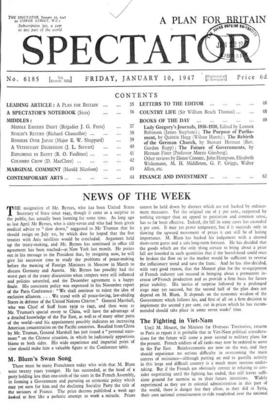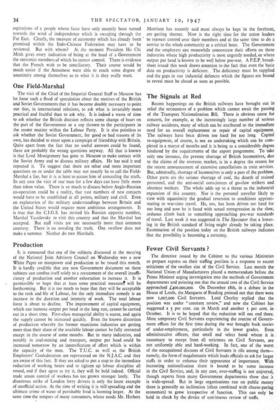The Fighting in Viet-Nam
Until M. Moutet, the Minister for Overseas Territories, returns to Paris to report it is probable that in Viet-Nam political considera- tions for the future will come a poor second to military plans for the present. French soldiers of all ranks may now be ordered to serve in the Far East. Reinforcements are now on the way, and they should experience no serious difficulty in overcoming the main centres of resistance—although putting an end to guerilla activity in this large and difficult country is a much more onerous under- taking. But if the French are obviously correct in refusing to con- sider negotiating until the fighting has ended, that still leaves suffi- cient ground for surmise as to their future intentions. Widely experienced as they are in colonial administration in this part of the world, there is danger lest they allow, as they did in Syria, their own national consciousness to ride roughshod over the national
aspirations of a people whose faces have only recently been turned towards the wind of independence which is sweeping through the Far East. Clearly, the measure of autonomy which has already been promised within the Indo-Chinese Federation may have to be reviewed. But with whom? At the moment President Ho Chi Minh gives every indication of being at the head of a Government the extremist members of which he cannot control. There is evidence that the French wish to be conciliatory. Their course would be much easier if the Annamese were able to reach some degree of unanimity among themselves as to what it is they really want.



































